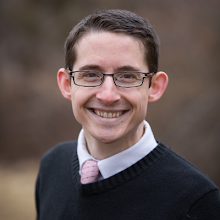Just over an hour ago, I received my fieldwork assignment. I'm excited, and eager to find out what I will be doing with them. Among my first assignments, it seems, will be helping with press credentials for, I believe, employees (my supervisors don't do personal blogs, so I won't name them here. I begin work on Sunday in downtown Denver, and will be working about 5 1/2-hour shifts Monday through Thursday next week. Awesome!
I am scheduled to call my adviser on Friday to work out the details for the next few days.
Hints at Pepsi Center delegate seating
Illinois delegates will be seated in front of the stage at the Pepsi Center for the Democratic National Convention, said Travis Dredd, the Democratic National Convention Committee's deputy CEO for inside-the-hall operations, in remarks today. He also seemed to hint that seating might be rearranged based on an upcoming announcement, presumably a reference to Barack Obama's forthcoming pick for a vice presidential running mate, which reports indicate will be made by Saturday.
Dredd and Cameron Moody, the DNCC's deputy CEO for outside-the-hall operations, were among today's speakers.
More about DNC blogging
The two also spoke about the increased access to the convention that bloggers will have this year. They've removed the weights from the Denver Nuggets' weightroom at the Pepsi Center and will be turning the team's practice court into what they called a bloggers' den. One blogger per state will be seated on the floor of the convention, each with his or her respective state's delegates. Another blogging tent will be set up near Union Station, but that isn't affiliated with the DNC, they said.
What people can bring to the convention
Security concerns dictate what can and can't be brought into the Pepsi Center and various other locations where convention activities will be held. Here's what Dredd and Moody said you can expect:
IN: Cameras, but only smallish ones without tripods or big flashes
IN: Empty water bottles. These were a request and are a new addition. Water stations inside the Pepsi Center will allow people to hydrate.
OUT: Liquids of any kind
OUT: Umbrellas
Background, responsibilities and thoughts on Denver as a host city
Dredd served in the U.S. Marine Corps for 6 years, and went on to study political science at UCLA. He began work in a political setting as an advance person — someone who goes ahead of a presidential candidate, for example, to set up events in a city ahead of their scheduled arrival. He worked with former Democratic presidential candidates Al Gore and John Kerry, and U.S. Sen. Dianne Feinstein (D-Calif.).
He said Denver has been a fun place to work over the past year because of its people and setting, and because it was so easy to connect with the community in setting up. He's been overseeing construction and production.
Moody's responsibilities include overseeing:
• airport operations: Meeting and greeting VIPs, delegates, the media and others
• the motor pool: GM is providing 400 flex-fuel vehicles, and the convention has over 1,000 volunteer drivers • the bus system: They've contracted out with 100 hotels in which convention attendees will stay, and buses provide transportation from those to the convention
• special services: Getting people from parties to the convention, and also handling American Disability Act issues to ensure that people who have special needs have access to the convention
• housing: They've got 17,000 hotel rooms allotted, and they have to put delegations together and organize when they'll be given credentials (that happens at breakfast, they said)
• security, credentialing and the Colorado Convention Center are also on the list of items that he works with
We also heard today from veteran Washington Post reporter Tom Reed, who often goes by T.R. Reed in print.
Convering conventions has become increasingly less fun for reporters, he said, as media place a greater focus on putting content online. He described his early days covering politics as a reporter in which reporters would travel together on planes that they quickly trashed. On a really good day, reporters would file two stories, and after that were free to do what they wanted.
They would designate a chief in whatever city they would be visiting to scout out the best restaurant in town and convince its management to stay open past closing time for the reporters, many of whom would pay a good deal of money for alcohol.
He said he doesn't believe in such a thing as an objective campaign reporter. As the days go by, reporters develop personal opinions about whether a candidate is qualified for the job. It's impossible not to, he said.
He described McCain as being loved by journalists everywhere because of his willingness to be interviewed. He said McCain reads reporters' stories and offers his feedback, including praise for a job well done. Obama is somewhat distant, Reed said, though he's only met him once. Reed's impression, he said, is that after reporters interview Obama a few times, they know what he will say in subsequent interviews.
Reed described the time he suggested to libertarian presidential candidate Ed Clark that he change up his speech at an upcoming event in Butte, Mont., by discussing his view that heroin should be legalized.
Clark ended up doing just that.
Reed also described being yelled at by Howard Dean for saying that Dean had yelled at staffers in a Post article. He described his time covering politics overseas, where he said it's much easier to get stories (he doesn't compete with reporters overseas, and he often doesn't care who wins those elections).
We also heard from Wally Podrazik, the DNCC's director of media logistics, another interesting speaker who described advances in technology that have transformed the convention since that in Denver in 1908.
Subscribe to:
Post Comments (Atom)

No comments:
Post a Comment